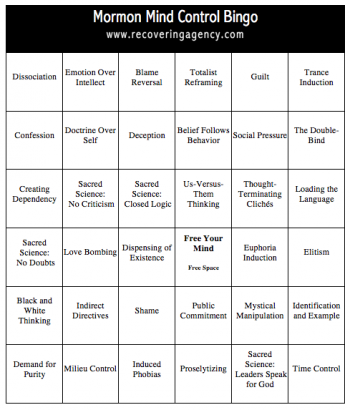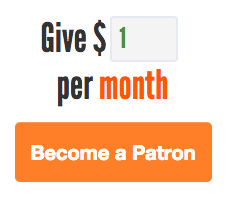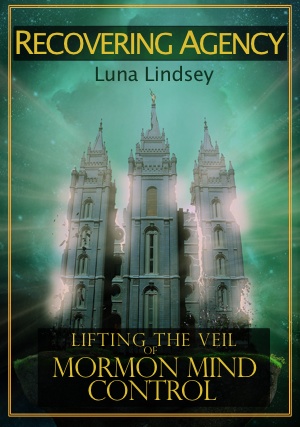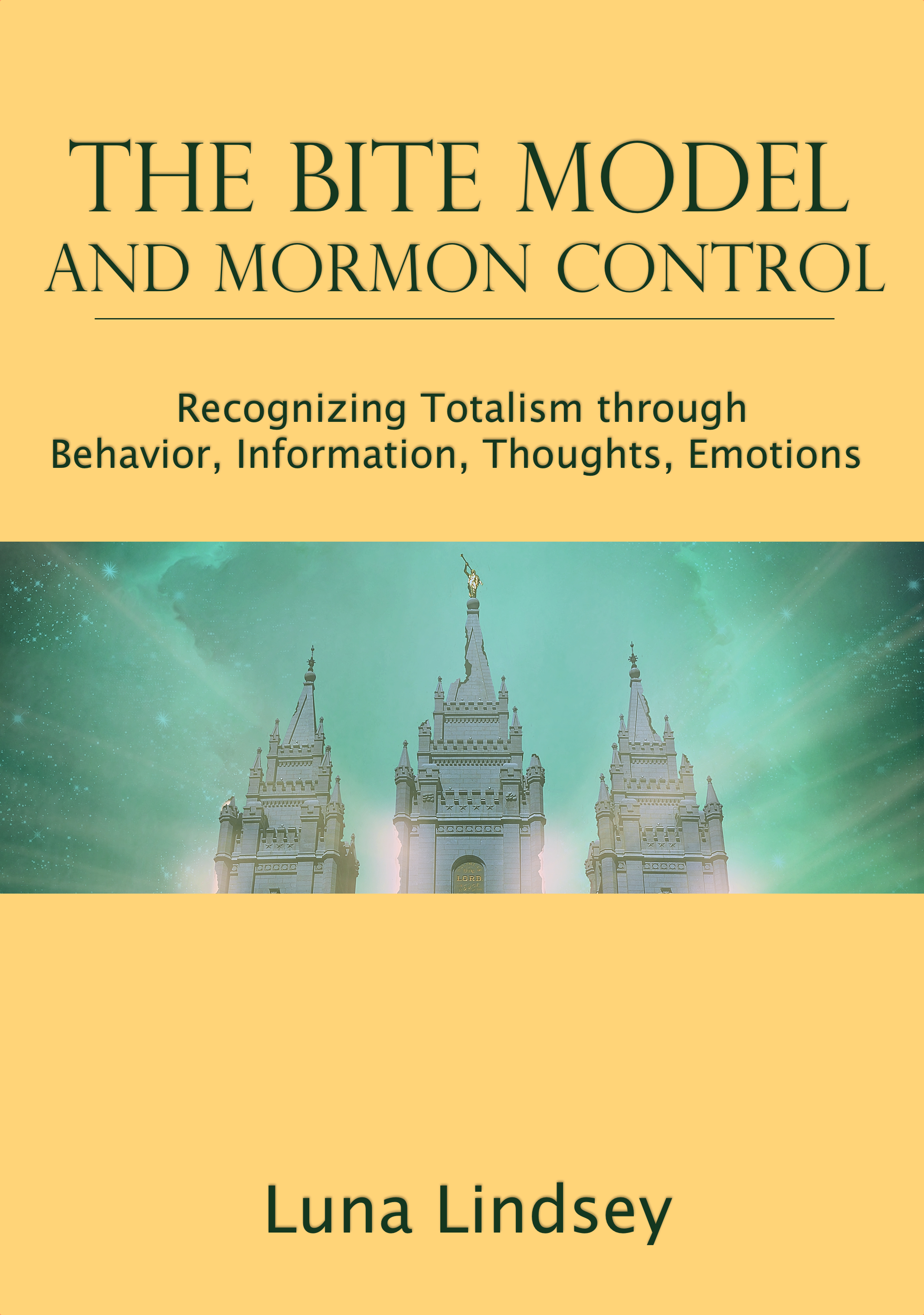October 2014 LDS General Conference: Mind Control Overview
Last weekend, the Mormon Church held its semi-annual General Conference, two days of religious talks that all members are expected to watch.
I’ve listened to many Conference talks in my lifetime, both before I left the Church and since. This year, one talk stood out, because I saw lots of buzz about it on Twitter. It is talk, “Loving Others and Living with Differences,” by Apostle Dallin H. Oaks, given Saturday morning.
The overall theme of “Love” might seem to place this talk above reproach, yet it is a case study of LDS manipulation at its best. In just 15 minutes, Elder Oaks deployed enough thought reform to win a round Mind Control Bingo. So I’m here to break it down.
Some members will walk away from Elder Oaks’ talk feeling more unconditional love for their fellow man, with a better understanding of how to practice it.
But others will come away reaffirmed in their belief that they’re good, the outside world is evil, but in spite of this, maybe they should try to tolerate and endure all these horrible people as best they can. And that’s not love.
He starts by evoking one of the best lines Jesus ever said: “Love one another.” That’s some pretty obvious morality there. Difficult to argue with him, unless you’re a cartoon villain, or Ayn Rand.
To make sure you know he’s talking about love, he quotes the prophet, Thomas S. Monson: “Love is the very essence of the gospel.” This is an appeal to ideals, which generates euphoria and associates the organization with goodness. Anyone criticizing the Church will seem to be arguing against love itself. I’ve been accused of this many times: Why can’t you leave a good thing alone? We teach love and service!
After all this buildup, Oaks’ quickly flips love on its head, with a wince-inducing line. When I saw this quote on Twitter, I knew I had to listen to the whole talk:
“Why is it so difficult to have christlike love for one another? It is difficult because we must live among those who do not share our beliefs and values and covenant obligations.” Continue reading




